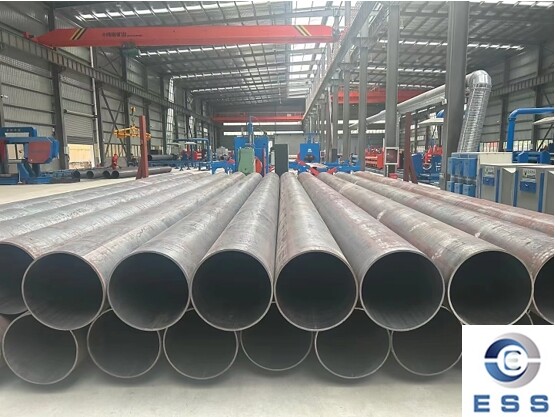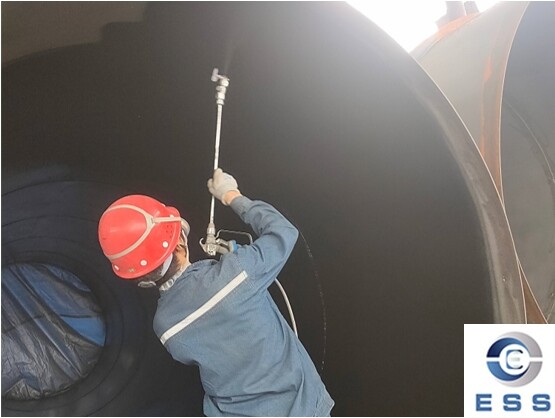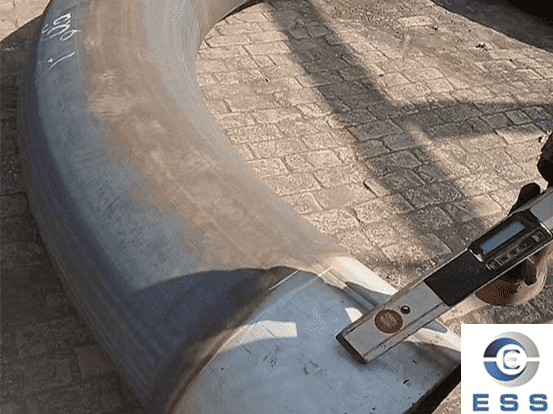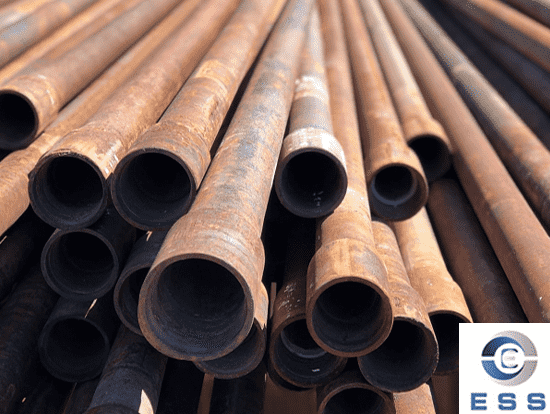
The external insulation boiler
tube coating should use special coatings that are resistant to high
temperature, corrosion and durability.
Selection of boiler tube coatings
The insulation coating of boiler tubes
should use special coatings instead of ordinary household coatings. Boiler
tubes made of seamless
steel pipes, with their seamless characteristics, can better resist
physical deformation under high temperature and high pressure environments.
However, seamless boiler tubes are in high temperature, high pressure and
corrosive environments for a long time, so it is also very important to choose
special coatings suitable for the environment. High-quality coatings can extend
their service life and ensure the stable operation of the boiler system.
Types of boiler tube coatings
1. Aluminum silicate coating (ASTM C795
certification)
Aluminum silicate coating is a coating with
high temperature and corrosion resistance. It can resist corrosion under
long-term high temperature conditions. It is widely used in various industrial
environments, especially in environments with corrosive gases. For example, in
some systems that use hydraulic
tubes to transmit high temperature and high pressure fluids, the
surrounding boiler tubes are very suitable for this coating.
Innovative process: Nano-powder spraying
technology (particle size ≤ 50nm)
Technical parameters: Rhermal conductivity ≤ 0.08W/(m·K) @700℃,
compressive strength ≥ 8MPa, linear shrinkage ≤ 0.3%
2. Gas phase two-component coating (ISO
12944 C5-M certification)
Gas phase two-component coating is a
coating with both high corrosion resistance and high temperature stability. It
can be used under high temperature conditions without falling off. At the same
time, it also has very high corrosion resistance, which can effectively prevent
problems such as decreased sealing due to corrosion at the pipe flange connection.
Patented technology: PECVD plasma enhanced
chemical vapor deposition
Performance advantages: Film density >
99.5%, porosity < 0.01%, bonding strength ≥ 25MPa
3. Stainless steel cladding (ASME B31.1
standard)
The main function of the stainless steel
cladding is to prevent the pipeline from corrosion under high temperature, high
pressure and corrosive environment. It has a good protective effect on
different types of boiler tubes. In some boiler piping systems made of precision
tube with high precision requirements, the use of stainless steel coating
can better resist harsh environments and maintain pipeline performance.
Innovative structure:
316L stainless steel substrate (δ=0.8mm)
Ceramic fiber buffer layer (δ=5mm)
Nano aerogel insulation layer (δ=10mm)
|
Heat resistance performance classification standard
|
|
Coating type
|
Long-term temperature resistance range
|
Instantaneous temperature resistance
peak
|
Number of thermal shock cycles
|
|
Aluminum silicate coating
|
650℃~850℃
|
1100℃
|
≥500 times
|
|
Gas phase two-component coating
|
450℃~700℃
|
900℃
|
≥300 times
|
|
Stainless steel coating
|
800℃~1000℃
|
1200℃
|
N/A
|
Data source: ASTM C795 high temperature
test standard

Pros of boiler tube coating
1. Good high temperature resistance
Due to the high temperature of boiler
tubes, it is necessary to select coating materials that can be used in high temperature
environments.
2. Good corrosion resistance
Since the boiler tube is in a corrosive
environment, corrosion-resistant coating materials must be selected to ensure
its service life.
3. Durable
The service life of the thermal insulation
coating is directly related to the service life of the pipe. Therefore, it is
necessary to select a special coating with strong durability and long service
life.
Summary
Choosing a suitable thermal insulation
coating is one of the necessary measures to ensure the service life and
stability of the boiler tube. Whether it is the characteristics of the coating
or the construction cost, it needs to be comprehensively considered in the
selection process. High temperature, corrosion resistance, and durability are
the key points that we must consider when choosing thermal insulation coatings.
Read more: How To Weld Boiler Tubes? or Material of Boiler tube













 Eastern Steel Manufacturing Co.,Ltd not only improve product production and sales services, but also provide additional value-added services. As long as you need, we can complete your specific needs together.
Eastern Steel Manufacturing Co.,Ltd not only improve product production and sales services, but also provide additional value-added services. As long as you need, we can complete your specific needs together.











